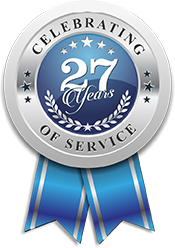
6 Leading eCommerce Delivery Best Practices
eCommerce delivery plays a significant role in the success of a business. Therefore, to ensure that the company is successful, the business should be aware




Logistics is widely known as the process of coordinating and moving resources such as equipment, food, liquids, inventory, materials and people from one location to the storage of the desired destination. It was originally a military-based term that was used to describe how the military force obtained, stored and moved equipment and supplies. In the supply chain and business sense, logistics is the management of the flow of things between the point of origin and consumption, so to fulfil the requirements of consumers or corporations. The logistics of the aforementioned resources involve the integration of production, packaging, warehousing, transportation, security, materials handling and information flow.
Logistics management focuses on the efficiency and effective management of daily activities concerning the production of the company’s finished goods and services. This type of management forms part of supply chain management and plans, implements and controls the efficient, effective forward, and reverse flow and storage of goods. The main aim of logistics management is to allocate the right amount of a resource or input at the right time.
Logistics management is also crucial for creating visibility into any company’s supply chain. As historical data is analyzed and the movement of goods is tracked real-time by advanced transportation management systems (TMS), logistics uses this information for process optimization and the avoidance of potential disruptions.
Additionally, supply chain visibility creates ground for major cost savings in operations. Proper logistics management procedures increase revenue and give businesses control over inbound freight; allow for the

















eCommerce delivery plays a significant role in the success of a business. Therefore, to ensure that the company is successful, the business should be aware

Over the last few years, South Africa has experienced a huge increase in eCommerce and eCommerce delivery. This increase has been influenced by the increase

Covid-19 has brought about new challenges and opportunities for each industry. Last-Mile Delivery hasn’t been spared from the effects of the pandemic. Last-mile has always